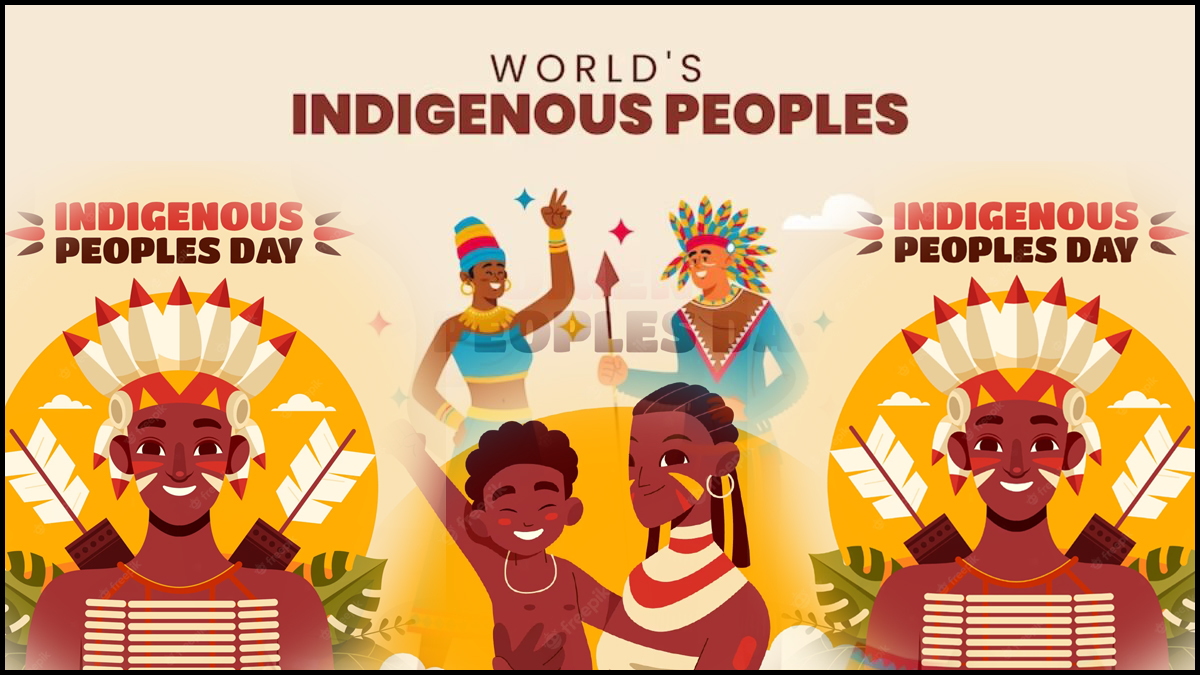
World Indigenous Day: Celebrating Cultural Diversity and Resilience
In a world that thrives on diversity, the observance of World Indigenous Day stands as a tribute to the vibrant cultures and traditions of indigenous communities across the globe. With a rich tapestry woven through centuries of history, these communities serve as a testament to the enduring human spirit and the need for cultural preservation. Let’s delve into the significance, history, and celebrations surrounding World Indigenous Day.
Table of Contents
1. Introduction
2. Defining Indigenous Peoples
3. Origins of World Indigenous Day
4. Cultural Diversity and Heritage
5. Challenges and Resilience
6. Global Celebrations
7. Preserving Indigenous Languages
8. Empowerment and Advocacy
9. Land Rights and Environmental Stewardship
10. Indigenous Knowledge and Wisdom
11. Fostering Intergenerational Connections
12. Cultural Appropriation vs. Appreciation
13. Indigenous Art and Craftsmanship
14. Educational Initiatives
15. Conclusion
Introduction
World Indigenous Day, celebrated annually on August 9th, is a reminder of the remarkable contributions made by indigenous communities to our shared human heritage. It is a day to honor their cultural diversity, resilience, and the intrinsic bond they share with the environment.
Defining Indigenous Peoples
Indigenous peoples are those who have a deep-rooted connection to their ancestral lands, preserving unique traditions, languages, and knowledge systems. They often face distinct challenges due to historical injustices, land dispossession, and marginalization.
Origins of World Indigenous Day
The idea for World Indigenous Day emerged at the United Nations Working Group on Indigenous Populations in 1982. The first International Day of the World’s Indigenous Peoples was celebrated in 1994, marking a significant step towards recognizing their rights and contributions.
Cultural Diversity and Heritage
The tapestry of indigenous cultures is woven with rituals, dances, art, and ceremonies that reflect their close relationship with nature. From the Maasai of Africa to the Inuit of the Arctic, each community holds a unique place in the global cultural mosaic.
Challenges and Resilience
Indigenous communities often grapple with social, economic, and political challenges. However, their resilience shines through as they navigate these obstacles while maintaining their cultural identity and ways of life.
Global Celebrations
World Indigenous Day is celebrated through various events, including workshops, cultural performances, and discussions. These gatherings highlight the importance of preserving indigenous traditions and fostering understanding among different cultures.
Preserving Indigenous Languages
Languages are a vital aspect of culture. Many indigenous languages are endangered, and efforts are underway to document, revitalize, and pass them on to future generations.
Empowerment and Advocacy
Indigenous communities advocate for their rights, seeking recognition of their land tenure, cultural expressions, and self-governance. These efforts contribute to a more inclusive and equitable world.
Land Rights and Environmental Stewardship
Indigenous peoples are often at the forefront of environmental conservation. Their holistic view of the land emphasizes sustainability and harmonious coexistence with nature.
Indigenous Knowledge and Wisdom
Traditional knowledge, passed down through generations, offers insights into sustainable practices, herbal medicine, and ecological balance. This wisdom benefits not only indigenous communities but also the world at large.
Fostering Intergenerational Connections
The transfer of knowledge from elders to younger generations is a cornerstone of indigenous cultures. This intergenerational bond ensures the continuity of traditions and values.
Cultural Appropriation vs. Appreciation
The distinction between cultural appropriation and appreciation is important. While appreciation promotes understanding and respect, appropriation often leads to the commodification of sacred traditions.
Indigenous Art and Craftsmanship
Art forms like beadwork, carving, weaving, and painting are integral to indigenous cultures. These creations are not just aesthetically pleasing but also carry deep cultural significance.
Educational Initiatives
Educational programs that promote indigenous history and culture contribute to a more inclusive curriculum and a broader understanding of our shared past.
Conclusion
World Indigenous Day is a poignant reminder of the importance of preserving and celebrating the rich cultural heritage of indigenous communities. It calls for a collective effort to support their rights, protect their traditions, and appreciate the invaluable contributions they make to our global society.
Also Read –JioBook Laptop: Reliance Jio Launches JioBook at Rs 16,499
FAQs
1. Why is World Indigenous Day celebrated on August 9th?
World Indigenous Day is celebrated on August 9th to coincide with the first meeting of the United Nations Working Group on Indigenous Populations in 1982.
2. How can I participate in World Indigenous Day celebrations?
You can participate by attending local events, learning about indigenous cultures, and supporting initiatives that empower indigenous communities.
3. What are some ways to support indigenous languages?
Supporting language revitalization programs, learning and using indigenous languages, and raising awareness about language preservation are impactful steps.
4. What is the significance of indigenous art in modern society?
Indigenous art not only carries cultural significance but also challenges conventional artistic norms, fostering cross-cultural understanding and appreciation.
5. How does cultural appropriation impact indigenous communities?
Cultural appropriation can erode the authenticity of indigenous traditions, perpetuate stereotypes, and undermine the cultural identity of indigenous peoples.
Also Read –Stomach mechanisms & function

One thought on “World Indigenous Day”